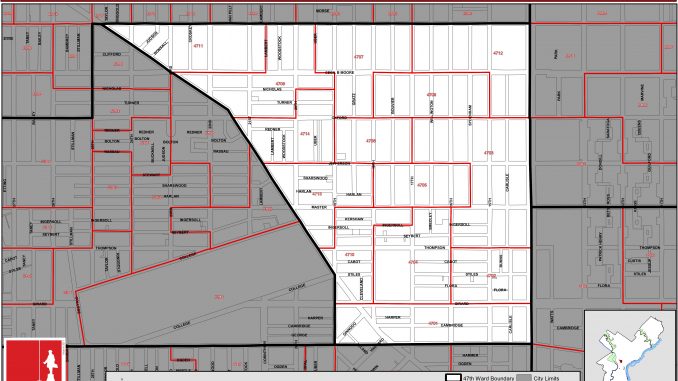
George Brooks has lived on the same street for more than six decades.
He resides on the 1600 block of North 17th Street, located near the middle of Philadelphia’s 47th political ward—where he has served as its Democratic leader for more than 20 years.
Now, he wants to make sure his constituents are informed about Temple’s proposed on-campus stadium, which would be built at Geasey Field in the city’s 32nd political ward, which lies directly north.
“It seems to me that Temple has not really talked to the people that they need to talk to,” Brooks, 65, said. “The homeowners maybe, the people who have been [here] for a while as opposed to someone who just got [here], and find out what their needs are and find out what their fears are.”
Brooks said he hasn’t decided whether he supports the proposal. He added, however, that discussions between the university and community are vital.
“There’s so many things [Temple] can do,” he said about improving conditions in his ward. “But they have to talk, and they have to talk to the people that are really affected.”
The 47th ward stretches from Poplar Street to the south to Montgomery Avenue to the north. It’s bordered by Broad Street to the east and mostly Ridge Avenue to the west.
Residents who live in the ward had mixed reactions last week when asked about Temple’s proposed stadium.
Reitha Broaddus, 70, lives on the 1600 block of North Bouvier Street and strongly opposes the stadium.
“Temple’s been trying to do this for a long time,” she said of the university’s growth into the community. “The thing is they have no respect for the community … if they did, they would be going around door-to-door.”
Donald Pryor believes Temple has improved the surrounding neighborhoods. He understands the possible problems of trash, loitering and traffic that could arise, but also knows the impact an on-campus stadium could have on the university’s football team, including attracting recruits from the immediate area.
“When you have a good season, a light is shone on you,” said Pryor, who lives with his sister on the 1700 block of Oxford Street.
Derrick Broaddus, 42, of the 1700 block of North 16th Street believes the stadium would create more traffic in the area.
“You think traffic is bad with the Liacouras Center, imagine when they build that stadium,” he said. “You see the Liacouras traffic? Imagine that stadium traffic in a residential neighborhood.”
University officials have told The Temple News they are in the process of reaching out to community residents. Chairman of the Board Patrick O’Connor said earlier this month there could be a public forum between trustees and community members in the future.
Brooks said he supports the idea, but added that the meeting must be organized and constructive.
“What you don’t want to have is a big meeting of anybody coming in,” he said. “Because what happens is you don’t know who’s sincere and who’s not. Some people just like to talk, some people come with all negative [input], some people are not willing to compromise at all.”
Brooks added working with other ward leaders is important, along with knowing when to stay in your territory. Concerning stadium discussion, continuous communication between Temple and its surrounding neighborhoods is imperative, he said.
“I want to see what Temple is willing to offer the community … long-term,” he said. “It is going to be a monumental decision for Temple … Temple probably needs to reach out more and do more and find out what they need to do … they have to be the big brother.”
Steve Bohnel can be reached at steve.bohnel@temple.edu or on Twitter @Steve_Bohnel.


Be the first to comment